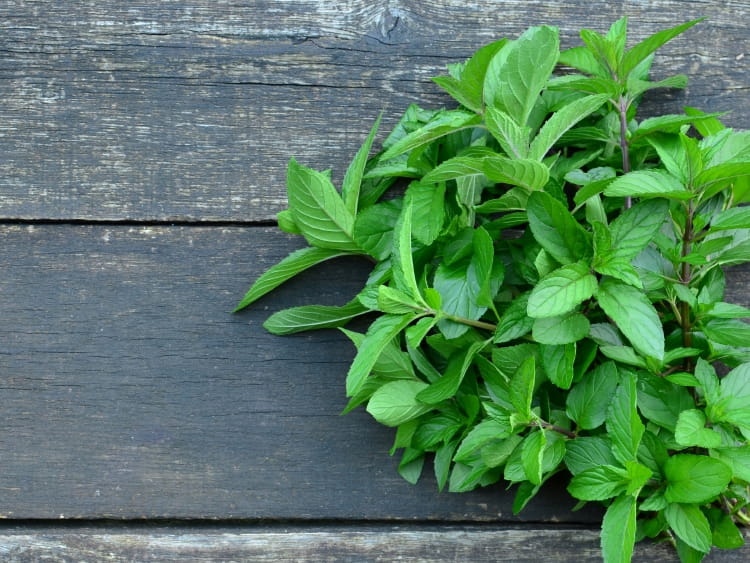Salvia: A Different Kind of Weed

The Bottom Line
Salvia is a hallucinogen that is legal to buy in some states. Teenagers can access Salvia more easily than other drugs of abuse.

The Full Story
When people refer to Salvia as a drug of abuse, they are referring to the plant Salvia divinorum. It is a member of the sage family originally from the southern Mexican state of Oxaca. The plant is still commonly used by the Mazatec people of that region who regard the plant as an earthly representation of the Virgin Mary. It is used in religious ceremonies and for the treatment of several illnesses. The plant is treated with respect, and some of the slang terms used reflect the religious association: ska Pastora (leaves of the shepherdess) and ska Maria (leaves of Mary). Slang terms used in the US include magic mint, diviner’s sage, la Maria, yerba Maria, and Sally D. Most commonly, however, it is just called Salvia.
Unlike heroin or cocaine, Salvia is not classified by the federal government as illegal, but most states classify Salvia as a substance that is illegal to sell or possess. A few states restrict the sale of Salvia to minors, but it's fairly easy to order online. Use of Salvia by high school and middle school students has been decreasing, according to a recent University of Michigan study sponsored by the National Institute on Drug Abuse.
Salvia leaves can be smoked, chewed, or made into a tea. Salvia contains salvinorin A, which can produce hallucinogenic effects. Any natural product will have variable amounts of active ingredients. Some sources of Salvia claim that their products have been manufactured with the salvinorin A component at a reliable potency to help control the high.
The onset of action of Salvia is within 30 minutes when smoked and 1 hour when swallowed. The high lasts for 15-20 minutes when Salvia is smoked and 2 hours when it is swallowed. Many people describe the hallucinations as unpleasant and do not wish to experience them again.
The major worries with Salvia use are the loss of awareness of surroundings by the user and the potential for unpleasant hallucinations. People who are unaware of their surroundings are at great risk of causing or being injured in accidents. It is a good idea to have a “sitter” to keep the user out of trouble.
If you have questions about Salvia abuse or think someone might be having problems from using Salvia, call Poison Control at 1-800-222-1222.
Pela Soto, PharmD, BSHS, BS
Certified Specialist in Poison Information
Prevention Tips
- Salvia has no accepted medical uses. Purchase or possession of Salvia should be assumed to be for abuse.
- Talk to teens about potential dangers of drugs, even those that can be purchased legally.
This Really Happened
An emergency physician called Poison Control because a 25-year-old man had been brought in after being found wandering in a neighborhood. He did not know how he got there and said that he had been smoking Salvia. He was confused but had normal vital signs, and a panel of laboratory tests found nothing abnormal.
Since his symptoms were relatively minor, Poison Control advised the physician to watch the patient until his symptoms improved and he could be safely discharged. A hospital psychiatrist evaluated the patient and he was able to go home about 6 hours later.
For More Information
Drug Enforcement Agency. Salvia Divinorum and Salvinorin A. Washington (DC). 2013 October [Accessed 2015 April 27].
References
Johnston LD, Miech RA, O'Malley PM, Bachman JG, Schulenberg J E. (2014). Use of alcohol, cigarettes, and number of illicit drugs declines among U.S. teens. University of Michigan News Service: Ann Arbor, MI. [Accessed 2015 May 8].
Siebert D. The Legal Status of Salvia Divinorum. 2015 April. [Accessed 2015 May 8].
Prevention Tips
- Salvia has no accepted medical uses. Purchase or possession of Salvia should be assumed to be for abuse.
- Talk to teens about potential dangers of drugs, even those that can be purchased legally.
This Really Happened
An emergency physician called Poison Control because a 25-year-old man had been brought in after being found wandering in a neighborhood. He did not know how he got there and said that he had been smoking Salvia. He was confused but had normal vital signs, and a panel of laboratory tests found nothing abnormal.
Since his symptoms were relatively minor, Poison Control advised the physician to watch the patient until his symptoms improved and he could be safely discharged. A hospital psychiatrist evaluated the patient and he was able to go home about 6 hours later.
